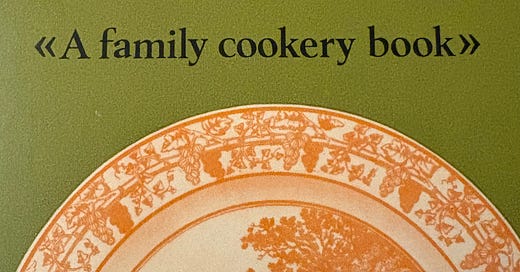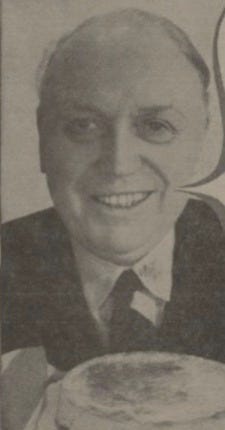Elizabeth David of Wootton Manor was an upper class girl, a debutante in 1932, whose choice of a bohemian lifestyle was nevertheless supported by her wealthy relations. Accustomed to the life of the country houses supported by servants, she learned to cook only in her 20s. She was 26 when she packed her library, including cook books, and sailed to France with her lover in their wooden, yawl rigged pleasure yacht. Their timing was not good. Crossing the Channel in July 1939, navigating the French waterways and locks, they were in Marseilles when war was declared in September. Books and boat were all lost by 1940 when she was writing home to her sister for replacement books, including this one …..
Ambrose Heath’s introduction to Good Savouries of 1934 describes:
The passion of the average Englishman and the bête noire of the ordinary housewife ..… the small savoury nevertheless often makes an admirable ending to a meal ……it has the last word, as it were before we turn to the frivolities of dessert.
Arabella Boxer reminds us that savouries were peculiar to England, not existing in any other country. The lengthy formal dinners of Victorian and Edwardian England would feature these small, highly seasoned dishes, usually hot, on a base of toast or pastry to clear the palate before the port was served. At dinner, she says, they took the place of the cheese course which was only served at lunchtime.
By the 1920s and 1930s modern households were serving shorter meals and Ambrose points out that the recipes can be used as:
hors d’oeuvre, or for such frivolous entertainments as fork luncheons, cocktail parties and so on, where snacks are demanded.
Who was Ambrose Heath?
He was born Francis Miller in 1891 but when he died in 1969 he had published around 80 cook books, worked as cookery correspondent for the Morning Post in the 1930s and for Queen magazine from 1938-1964. He wrote for the Guardian and the Daily Mirror and broadcast with the BBC On the Kitchen Front in wartime.
But let us remind ourselves how meals were served in well-to-do households in the early years of the twentieth century. Fortune Stanley, author of English Country House Cooking, my latest treasure, wrote in 1972:
‘There were giants on the earth in those days’ — how else did people, after such a breakfast and luncheon, eat steadily through dinner at 8.30, which consisted of soup, fish, entrée, joint, bird, sweet, savoury and a splendid dessert of peaches, grapes, strawberries, red and white raspberries and red and white currants — and, even more astonishing, after cooking and serving such a meal, the cook sat down with the butler and other potentates to a couple of hours of ‘long whist’ in the housekeeper’s room.
Fortune Stanley writes that she was taught to cook from the age of 9 by Mrs Menzies who came to cook for her mother. Trained at the famous Atholl Crescent in Edinburgh, Mrs Menzies, had worked in some prestigious kitchens, including that of the famous hostess, Mrs Ronnie Greville at Polesden Lacey. Fortune also thanks others for family recipes handed down, including her aunt, Mrs Guy Baring of the banking family. As she says, this is a book of English cookery and it has many first courses and savouries:
Tastes have changed considerably in the last fifty years, and appetites have changed too. Apart from formal meals, most people seem content with two good courses, with perhaps fruit or cheese on the side. On the other hand, the English passion for savouries — shared by no other nation and not altogether by me — has, if anything increased.
Sarah Raven recalls spending Christmas with her aunt Fortune and she sounds like quite a stylish character with a passion for gardening.
Maybe it is a good time to revive ‘the savoury’? If we have embraced the Italian crostini, bruschetta and cicchetti, aspire to nibble as the French in their apero hour, surely there must be a space to explore some of these lost delights?
The recipes below are available to subscribers who pay and thus donate to the charity I support with these ramblings and fundraising suppers. In 2025 all proceeds are going to anthonynolan.org to support their work with blood cancers.





